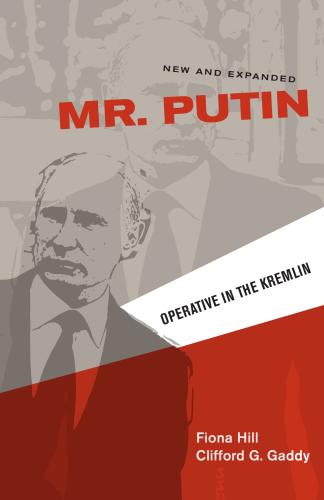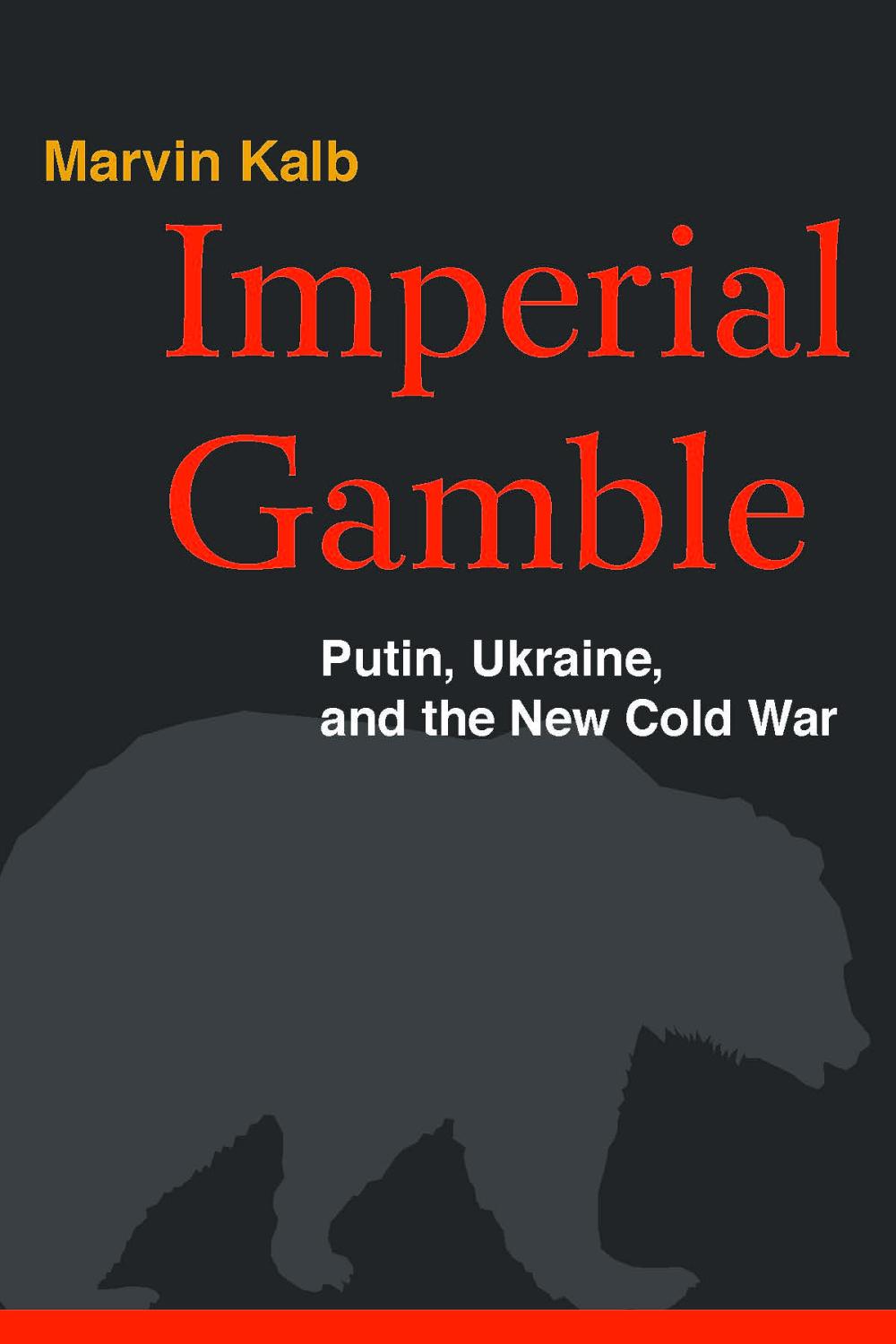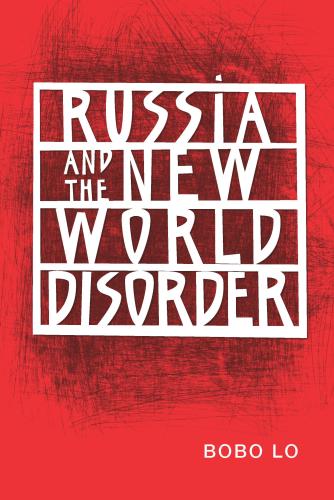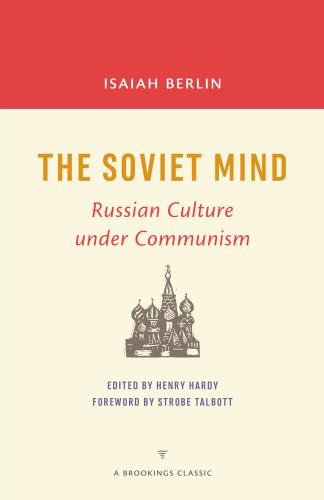


Book
Marvin Kalb, a former journalist and Harvard professor, traces how the Crimea of Catherine the Great became a global tinder box. The world was stunned when Vladimir Putin invaded and...
Marvin Kalb, a former journalist and Harvard professor, traces how the Crimea of Catherine the Great became a global tinder box. The world was stunned when Vladimir Putin invaded and seized Crimea in March 2014. In the weeks that followed, pro-Russian rebels staged uprisings in southeastern Ukraine. The United States and its Western allies immediately imposed strict sanctions on Russia and whenever possible tried to isolate it diplomatically.
This sharp deterioration in East-West relations has raised basic questions about Putin’s provocative policies and the future of Russia and Ukraine. Marvin Kalb, who wrote commentaries for Edward R. Murrow before becoming CBS News’ Moscow bureau chief in the late 1950’s, and who also served as a translator and junior press officer at the US Embassy in Moscow, argues that, contrary to conventional wisdom, Putin did not “suddenly” decide to invade Crimea. He had been waiting for the right moment ever since disgruntled Ukrainians rose in revolt against his pro-Russian regime in Kiev’s Maidan Square. These demonstrations led Putin to conclude that Ukraine’s opposition constituted an existential threat to Russia.
Imperial Gamble examines how Putin reached that conclusion by taking a critical look at the recent political history of post-Soviet Russia. It also journeys deep into Russian and Ukrainian history to explain what keeps them together and yet at the same time drives them apart.
Kalb believes that the post-cold war world hangs today on the resolution of the Ukraine crisis. So long as it is treated as a problem to be resolved by Russia, on the one side, and the United States and Europe, on the other, it will remain a danger zone with global consequences. The only sensible solution lies in both Russia and Ukraine recognizing that their futures are irrevocably linked by geography, power, politics, and the history that Kalb brings to life in Imperial Gamble.
Advance Praise for Imperial Gamble
“Marvin Kalb’s Imperial Gamble reflects the very nature of Russia—its sense of geopolitical grandiosity, mixing illusion with conviction and reality. Kalb brilliantly weaves Russian history into Vladimir Putin’s policies; he astutely merges national psychology and Kremlin politics. Following the great tradition of Marquis De Custine’s 1839 masterpiece, Empire of the Czar: A Journey Through Eternal Russia, Kalb creates a comprehensive picture of an often-schizophrenic nation. Similar to Custine’s description of the 19th century Russian empire, Kalb writes of the contemporary East-West divisions in Russia—and Ukraine. Using history skillfully, as a surgeon would his scalpel, Kalb contextualizes the 2014 Russian annexation of Crimea and explains that although Putin’s “gamble in Crimea (and it was a gamble) was reckless, even dangerous,” from a historical standpoint his actions were not out of line with the other vozhdi, Russian and Soviet leaders throughout centuries. The question, of course, is where do we go from here. To get an answer one simply must read Marvin Kalb’s magnificent book.”
—Nina L. Khrushcheva, Professor of International Affairs, New School University; author of The Lost Khrushchev: A Journey into the Gulag of the Russian Mind
“An important contextualization of the Ukraine crisis from a writer who has profiled every Russian leader since Khrushchev. Understanding Putin’s conception of Russian history will be critical to resolving the ongoing dispute over Crimea.”
—Henry Kissinger, former Secretary of State
“Tweets, blogs and partisan cable blather are ill-suited to the serious business of analyzing the unraveling of U.S.-Russian relations. If, indeed, we are on the brink of a new cold war, how did we get there?
Vladimir Putin is not a nice man and the military takeover of Crimea was a brazen act of aggression; but Putin’s actions in Ukraine did not happen in a vacuum. What’s needed is context and a sure-footed navigator. Marvin Kalb is both the historian and journalist to guide us, and his brilliant new book, Imperial Gamble, is the lucid, clear-eyed road map to explain the evolution from Peter the Great to Putin the Unpredictable.
Kalb’s fluency in Russian language and his professional lifetime as a diplomatic correspondent have combined to produce a tough-minded analysis that gives equal weight to Russia’s historic claims to Ukraine, and U.S. miscalculations in the wake of the Soviet Union’s collapse.
Not even Marvin Kalb can explain how to get out of the Ukrainian quagmire, but he does one fine job of explaining how we got into it.”
—Ted Koppel, Journalist
“Marvin Kalb demonstrates how much history matters in understanding what is happening in the conflict between Ukraine and Russia. Too much of the recent debate about Western policy betrays ignorance of the long history Ukraine has shared with Russia, and the clues that history provides for coping with the current predicament.”
—Graham Allison, Director of the Belfer Center for Science and International Affairs and Douglas Dillon Professor of Government at Harvard’s John F. Kennedy School of Government
“Imperial Gamble represents the distilled wisdom of a scholar-journalist who has observed fifty years of international politics from close-up as well as up-high – through the eye of a reporter and the analytic lens of a trained historian. Drawing on thousand years of East-West rivalry over the Ukraine, this gripping narrative explains Russia’s lunge into the Crimea and the South-East. Casting a critical and yet discerning eye on Putin, Kalb sees a drama of clashing interests where so many others have seen only the revival of Russian imperialism. Required reading for anybody who wants to understand a contest that will torment East-West relations for years to come. Keep it in hand as you listen to the excited chatter of the media.”
—Josef Joffe, Fellow of the Freeman-Spogli Institute for International Studies and the Hoover Institution at Stanford
Related Books

Fiona Hill, Clifford G. Gaddy
April 3, 2015

Bobo Lo
August 17, 2015

Henry Hardy, Isaiah Berlin Strobe Talbott
October 11, 2016

Michael E. O’Hanlon
August 31, 2015
Marvin Kalb is a nonresident senior fellow with the Foreign Policy program at Brookings, a senior adviser at the Pulitzer Center on Crisis Reporting, and a Murrow Professor Emeritus at Harvard. In his long and distinguished career, he served as the chief diplomatic correspondent for CBS and NBC, the Moscow bureau chief and the host of Meet the Press. He focuses on the impact of media on public policy and politics, and is also an expert in national security, with a focus on U.S. relations with Russia, Europe and the Middle East. His most recent book is The Road to War: Presidential Commitments Honored and Betrayed (Brookings Institution Press, 2013).
Egypt, Russia, and U.S. discussing Metrojet crash
Marvin Kalb on ‘New Cold War’
Why Putin is prepared to fight for Ukraine
Putin takes on Syria
Putin won his war in Ukraine
Ukraine: Putin’s deceptive pause
The Leader Russia Deserves
Searching for the roots of Russia’s aggression
Bipartisan Realism About Russia